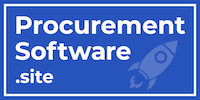In the fast-paced realm of business technology, setting up robust budget controls and approval protocols for new Software as a Service (SaaS) acquisitions is not just advisable – it’s imperative. Discover the key steps to fortify your financial framework and ensure optimal SaaS investments.
1. Define Your Financial Goals
To initiate an effective budget control and approval protocol, pinpoint your business’s financial objectives. Whether it’s cutting costs, enhancing profitability, or optimizing spending, clarity on goals is the first step to strategic financial management.
2. Allocate Your SaaS Budget
Once financial goals are established, determine the portion of your budget dedicated to SaaS acquisitions. This allocation should align with your overarching financial objectives, ensuring a focused and purposeful distribution of resources.
3. Curate an Approved SaaS List
Craft a curated list of pre-approved SaaS applications tailored to meet your business needs. This exclusive list should only feature applications that promise optimal results, streamlining the decision-making process.
4. Streamline the Approval Process
Clearly define the approval process for SaaS acquisitions. Identify key approvers and set the approval levels for various categories of purchases. Whether based on budget thresholds or adherence to the pre-approved list, a streamlined process is pivotal.
5. Specify Purchase Decision Guidelines
Establish guidelines outlining the necessary information for informed purchase decisions. Include details such as vendor names, costs, subscription lengths, expected return on investment (ROI), and other critical factors to facilitate a comprehensive evaluation.
6. Implement Review and Renewal Processes
Regularly review SaaS purchase decisions to ensure alignment with business goals. Create a structured process for reviewing decisions and identifying alternatives for underperforming vendors during renewal cycles.
7. Monitor and Analyze Spend Data
Maintain vigilance over SaaS spending by implementing a robust monitoring and analysis system. Track all expenditures over time, identifying potential areas for cost savings. This data-driven approach ensures efficient allocation of resources.
Conclusion: Master Your SaaS Investment Strategy
In conclusion, setting up budget controls and approval protocols for SaaS purchases is not just a safeguard; it’s a strategic imperative. By curating an approved SaaS list, streamlining the approval process, specifying decision-making guidelines, implementing review and renewal processes, and vigilantly monitoring spend data, businesses can assert control over their SaaS investments, optimizing spending for maximum efficiency.











